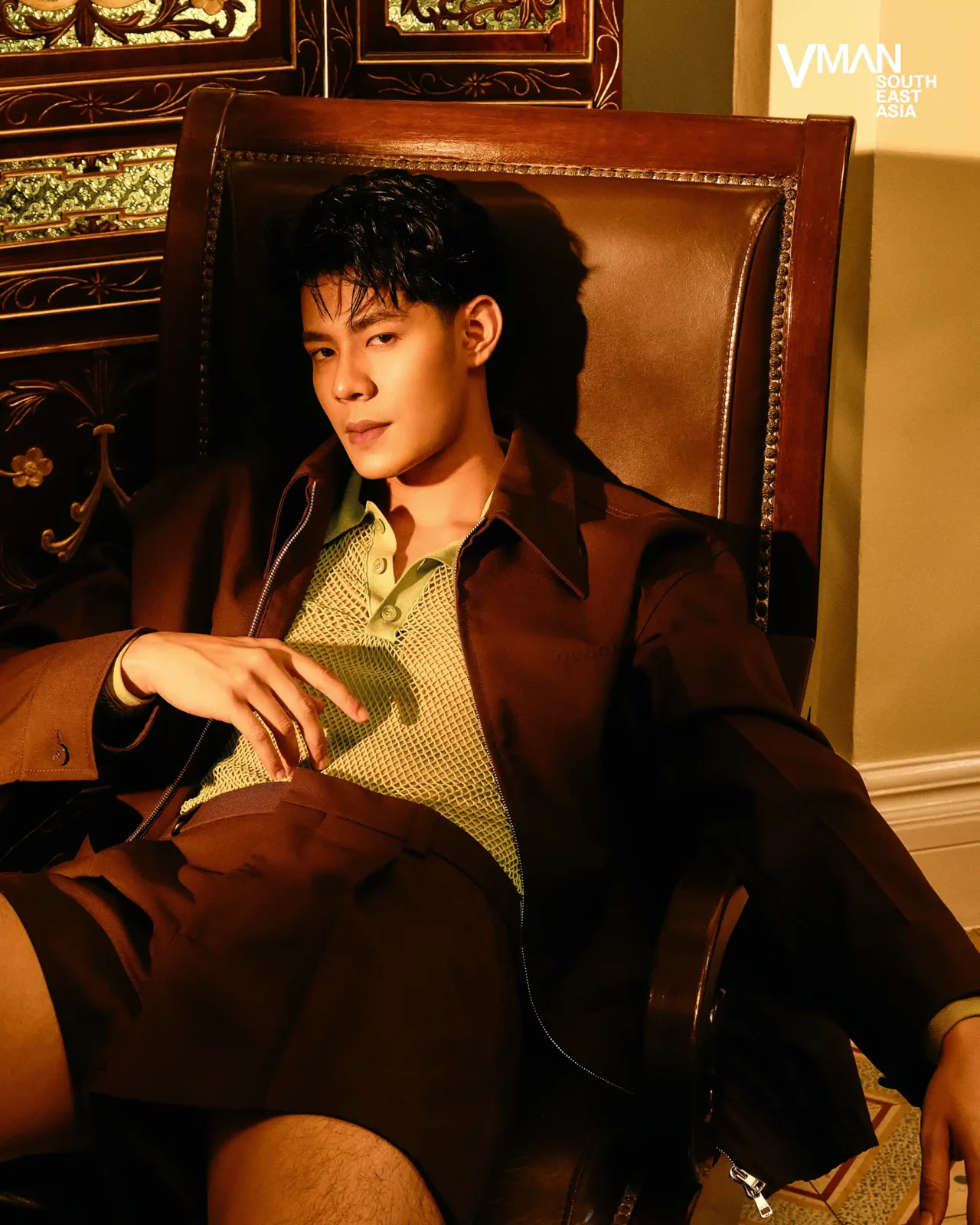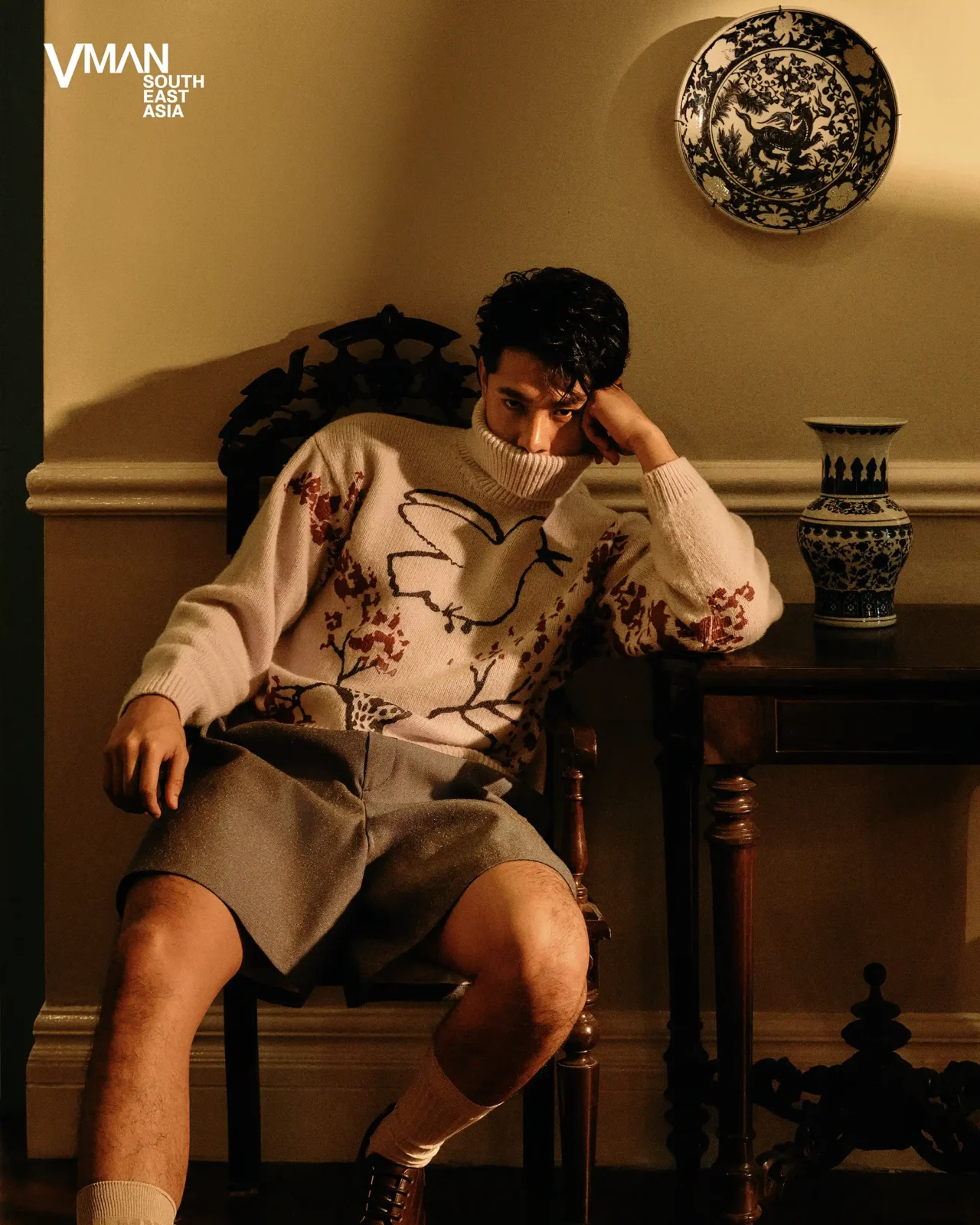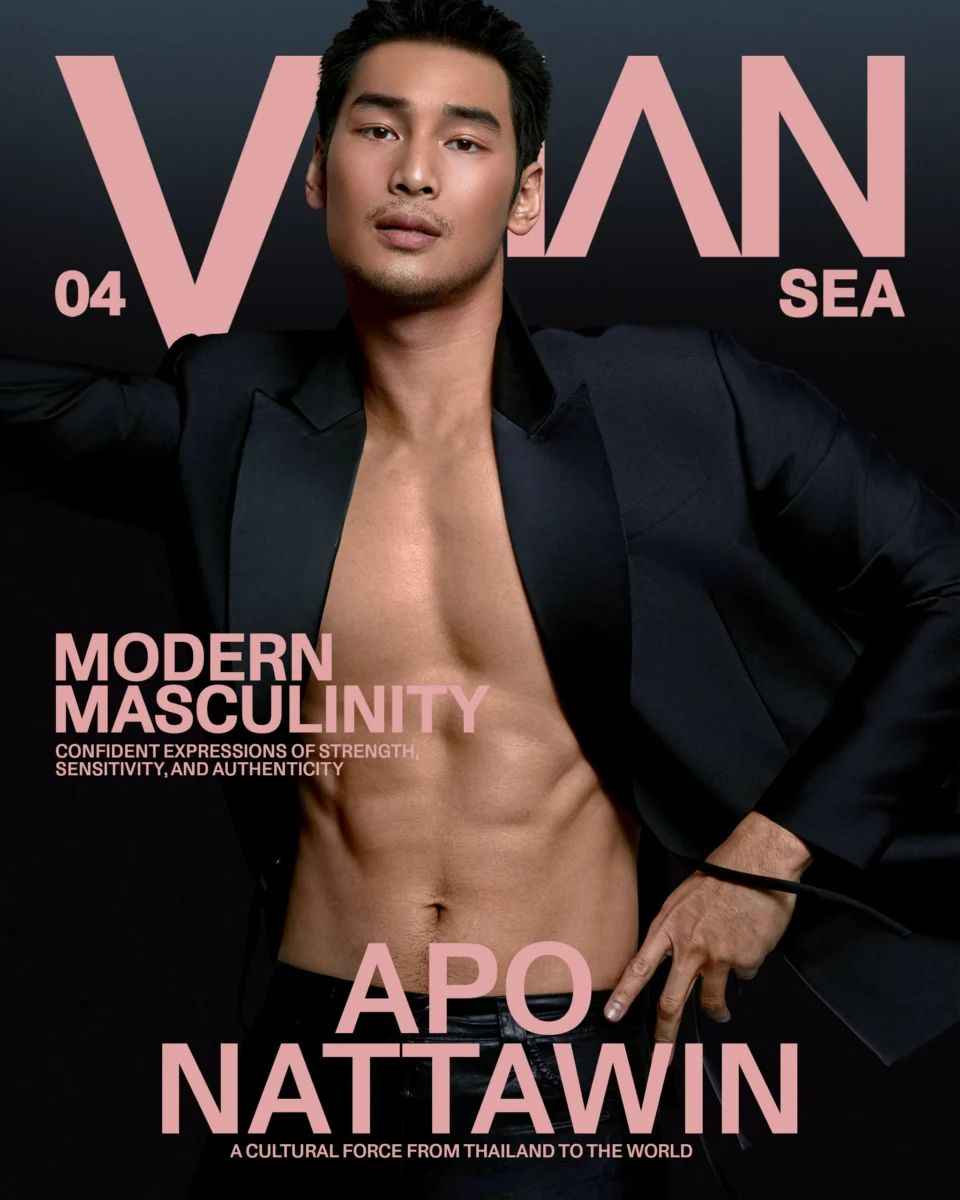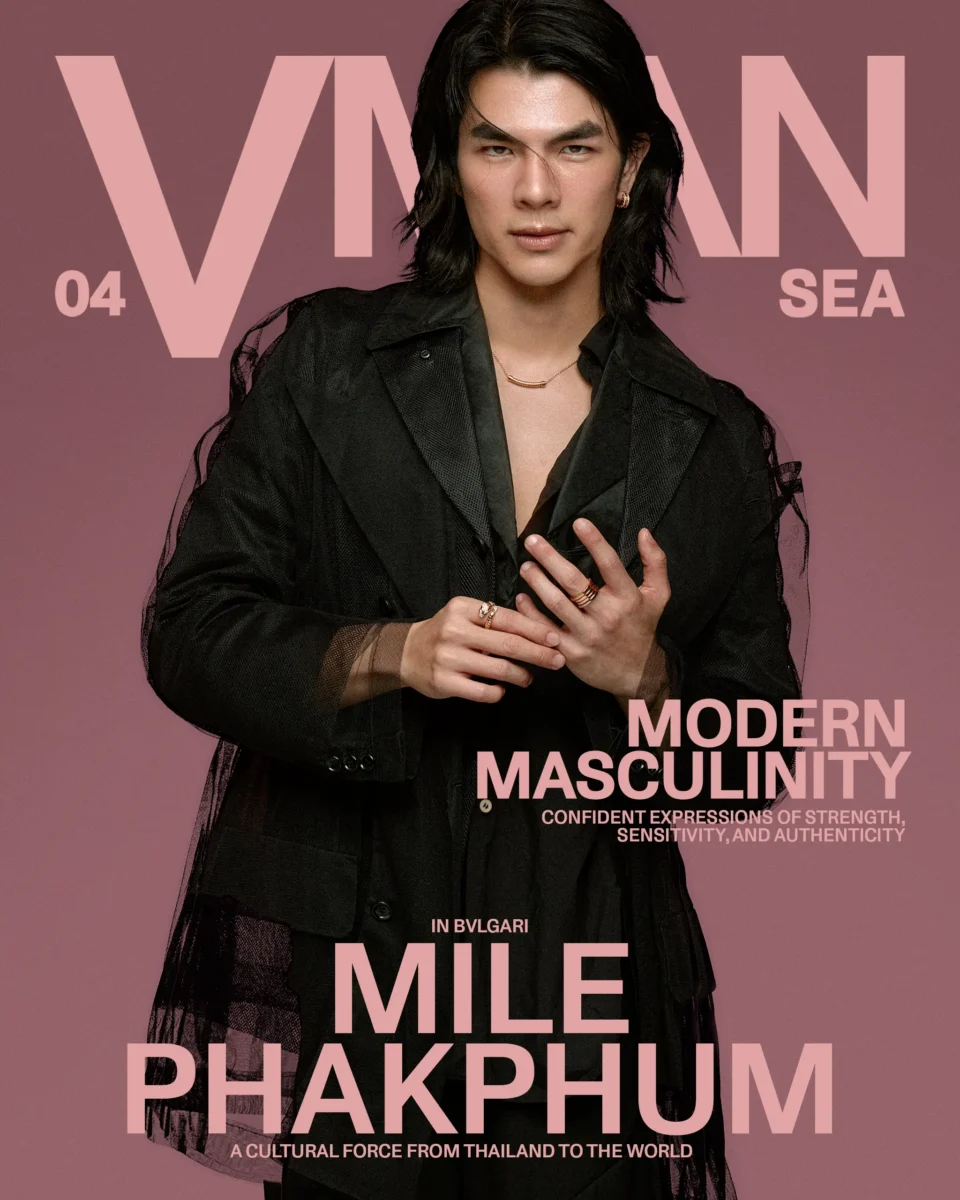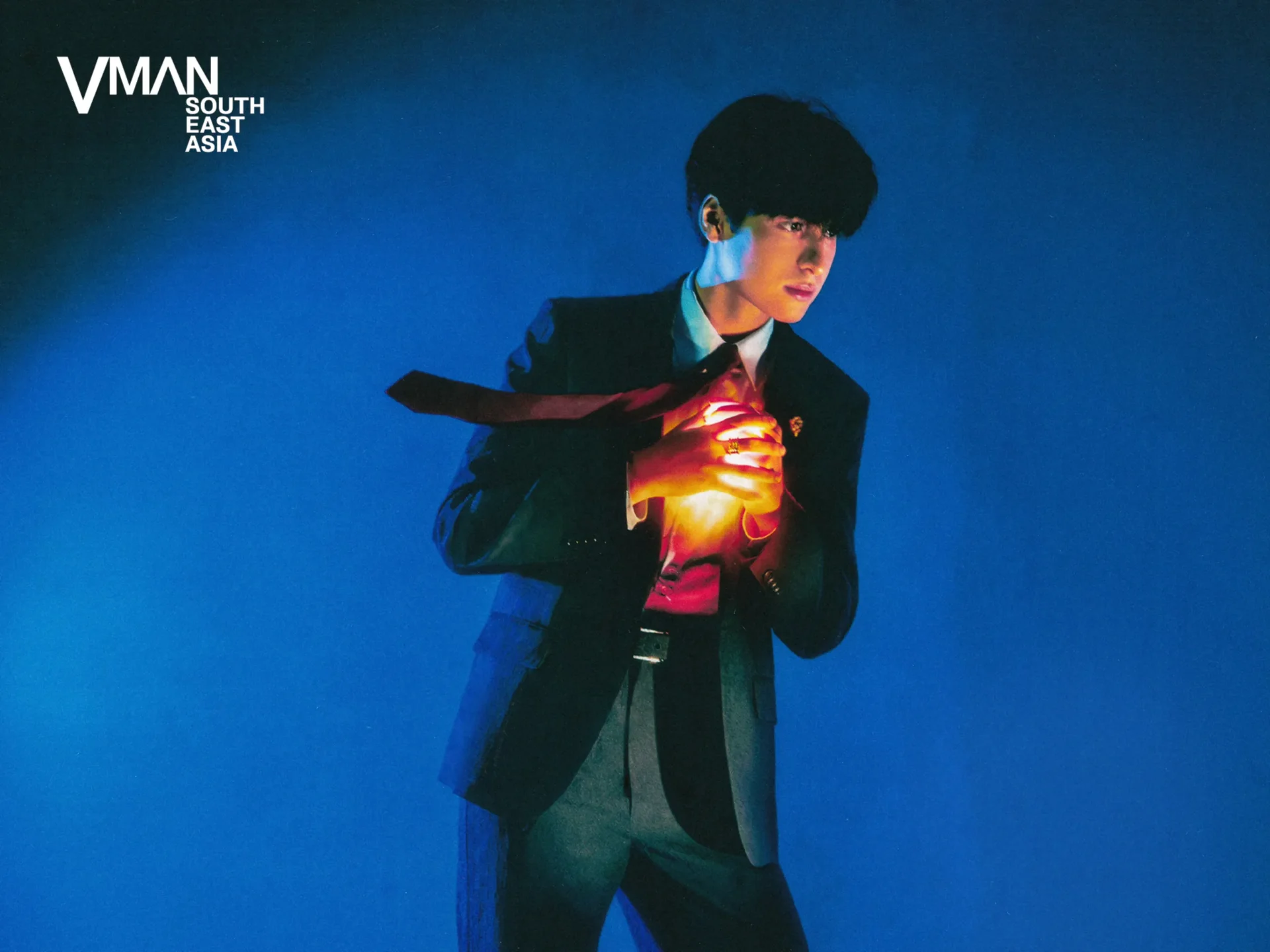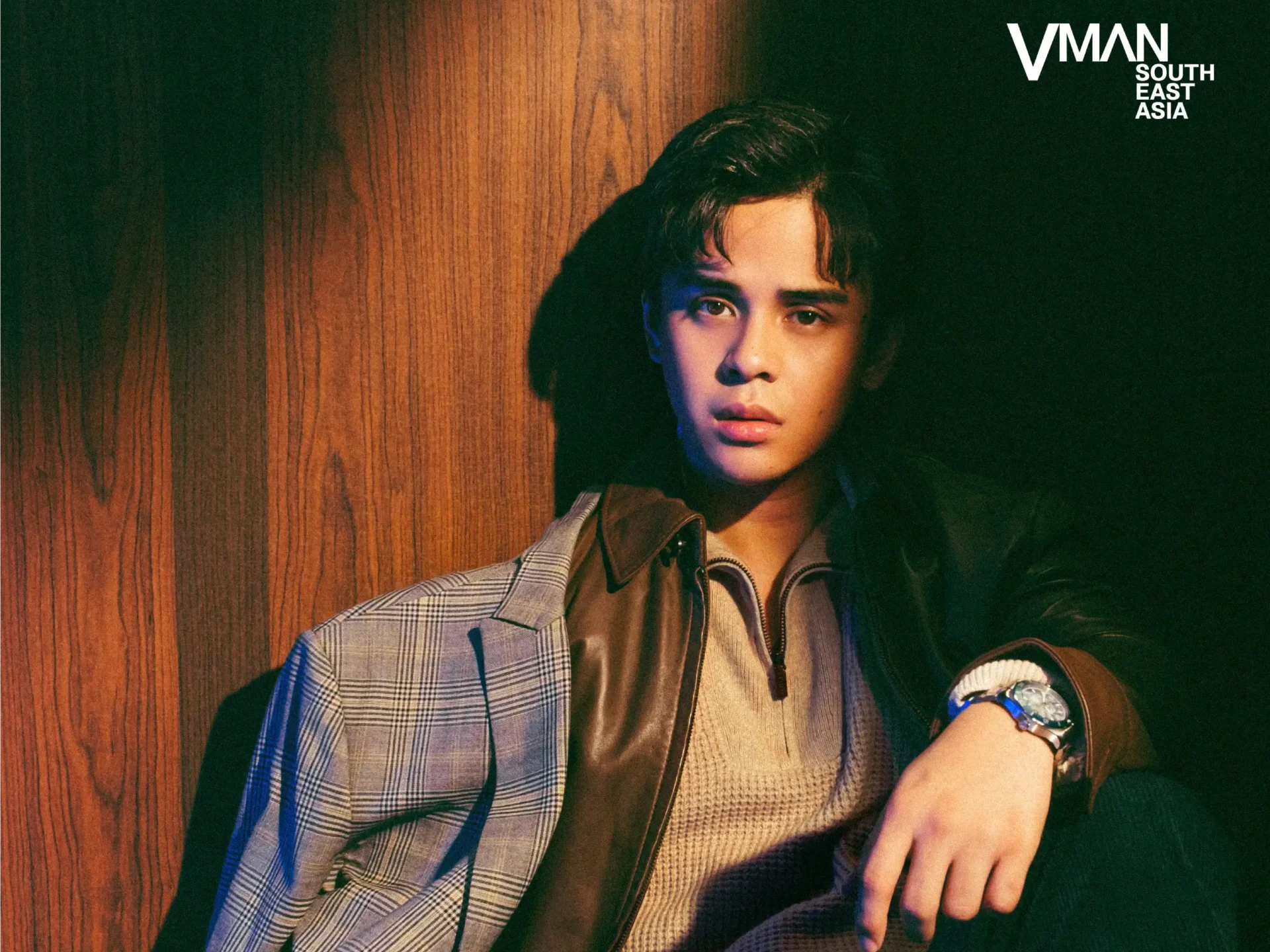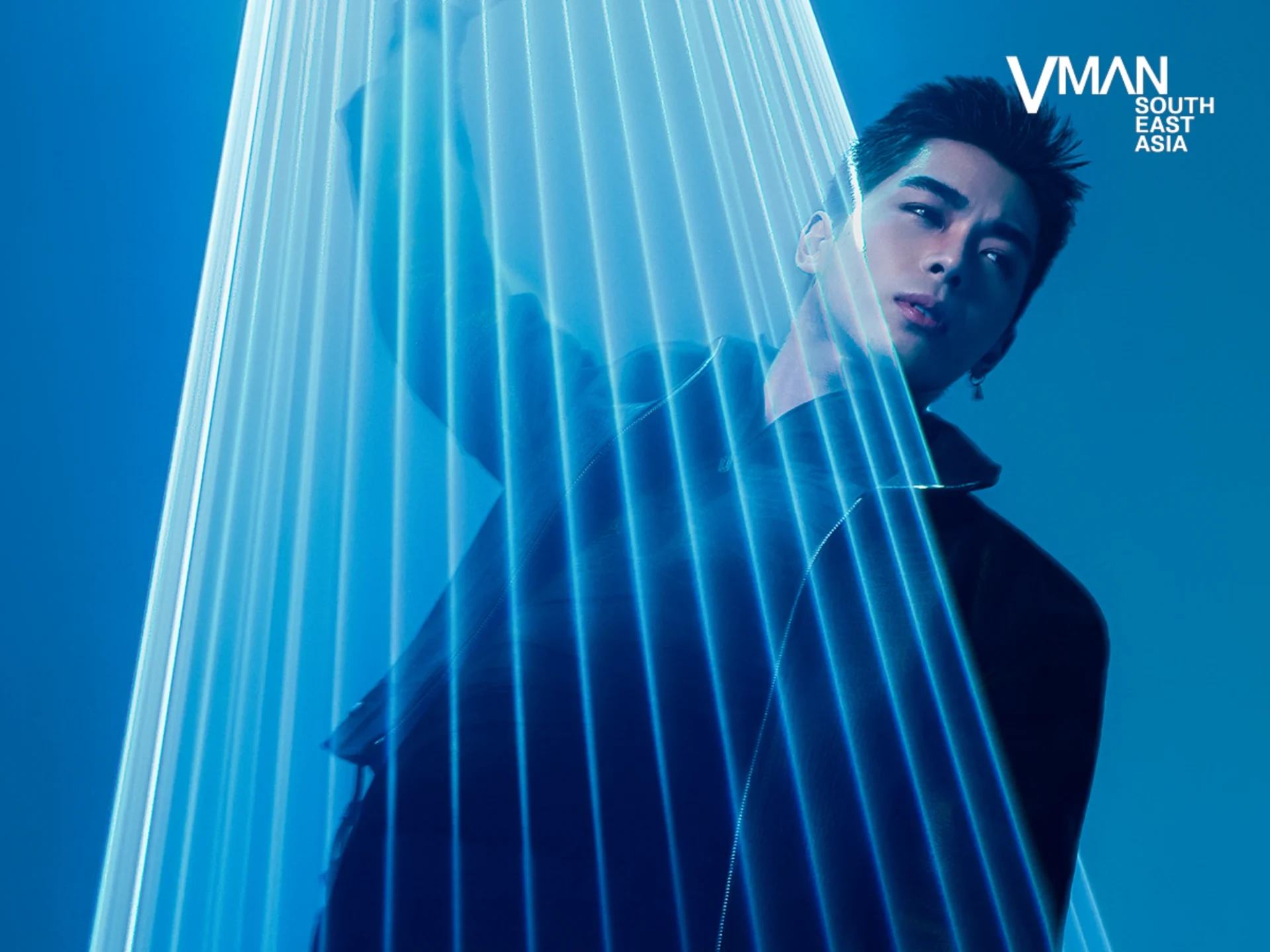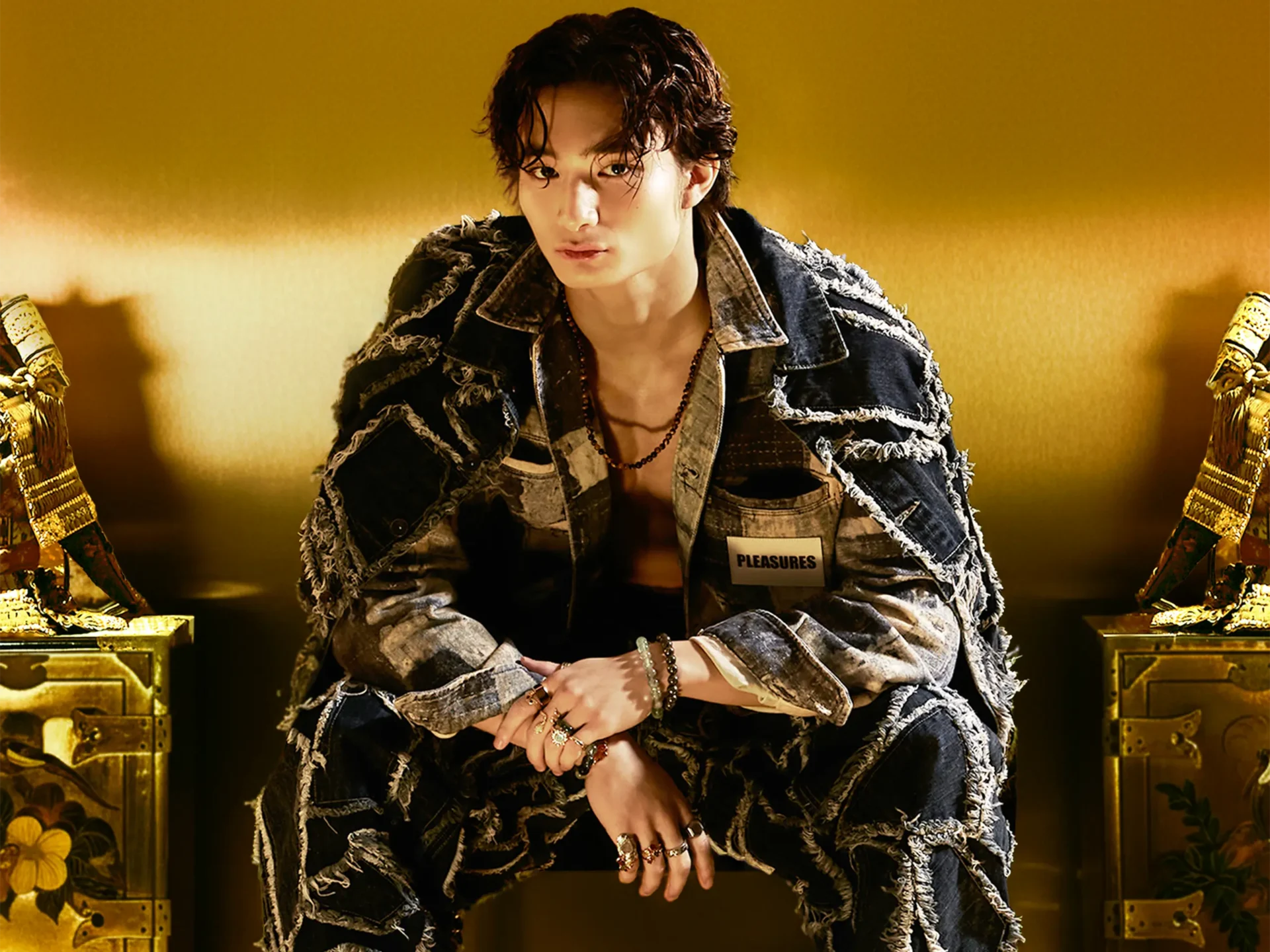The Making of Meerqeen
An actor who once tackled bodies on a rugby field now throws himself into roles with the same relentless hunger
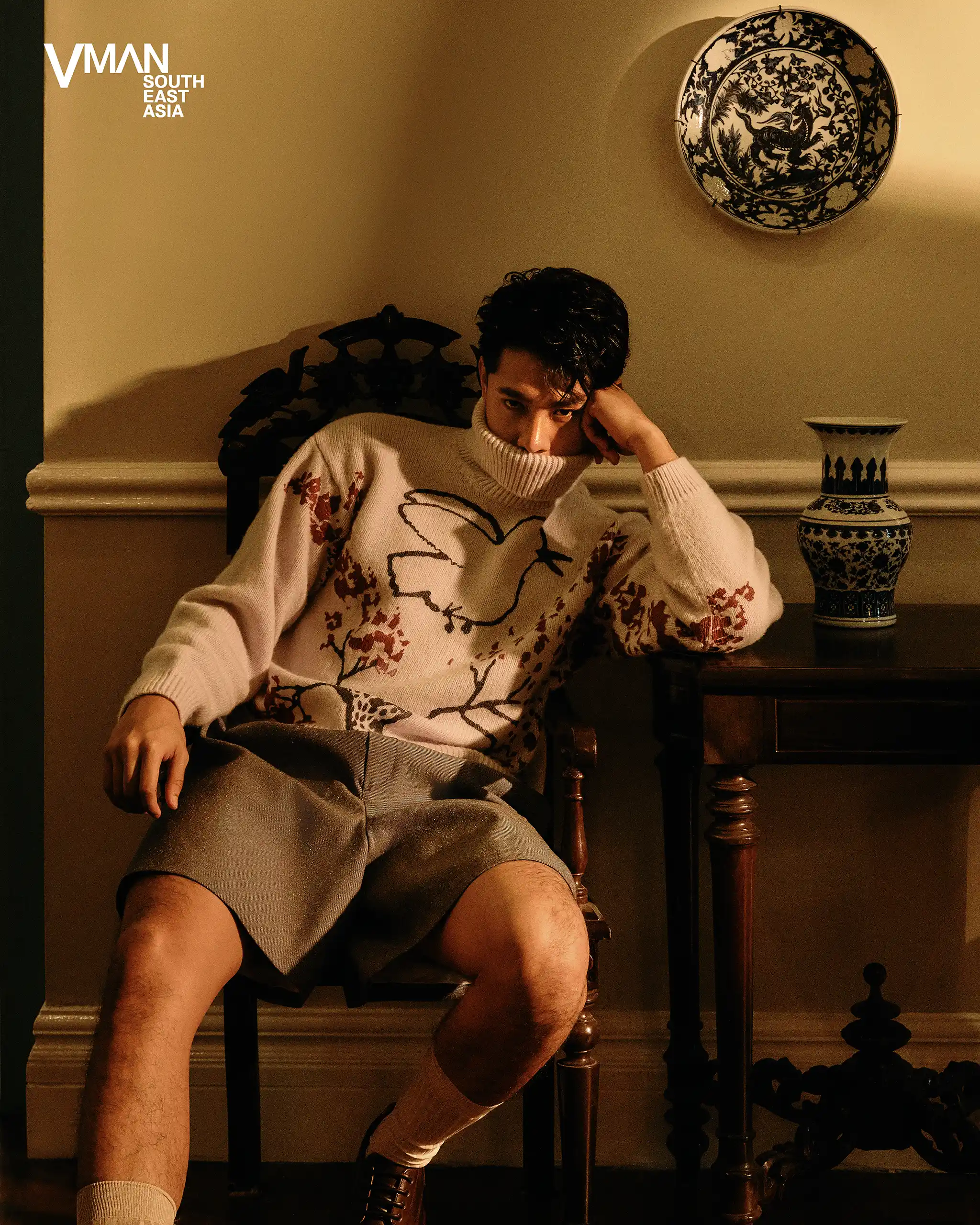
A star standing still in the storm
The rain falls in relentless sheets, hammering the tin roofs and bleeding into the red earth of old Malacca. The air is thick with the scent of wet soil and something older, harder to name, the dense and breathing weight of history. Here, in the countryside where the past never fully loosens its grip, the present hums in the whir of motorbikes and the shrieks of barefoot children skimming across flooded alleys.
And standing among it all, unbothered by the weather or the slow grind of the day, is Meerqeen. He doesn’t flinch when the drizzle hardens into a downpour. He doesn’t check his watch when the day stretches itself thin. If he’s tired, it doesn’t show. There’s a looseness to him, an unstudied grace, as if he were exactly where he was always meant to be. Leaning against a doorway, head tipped back in laughter, he teases the crew with an easy and weightless charm.
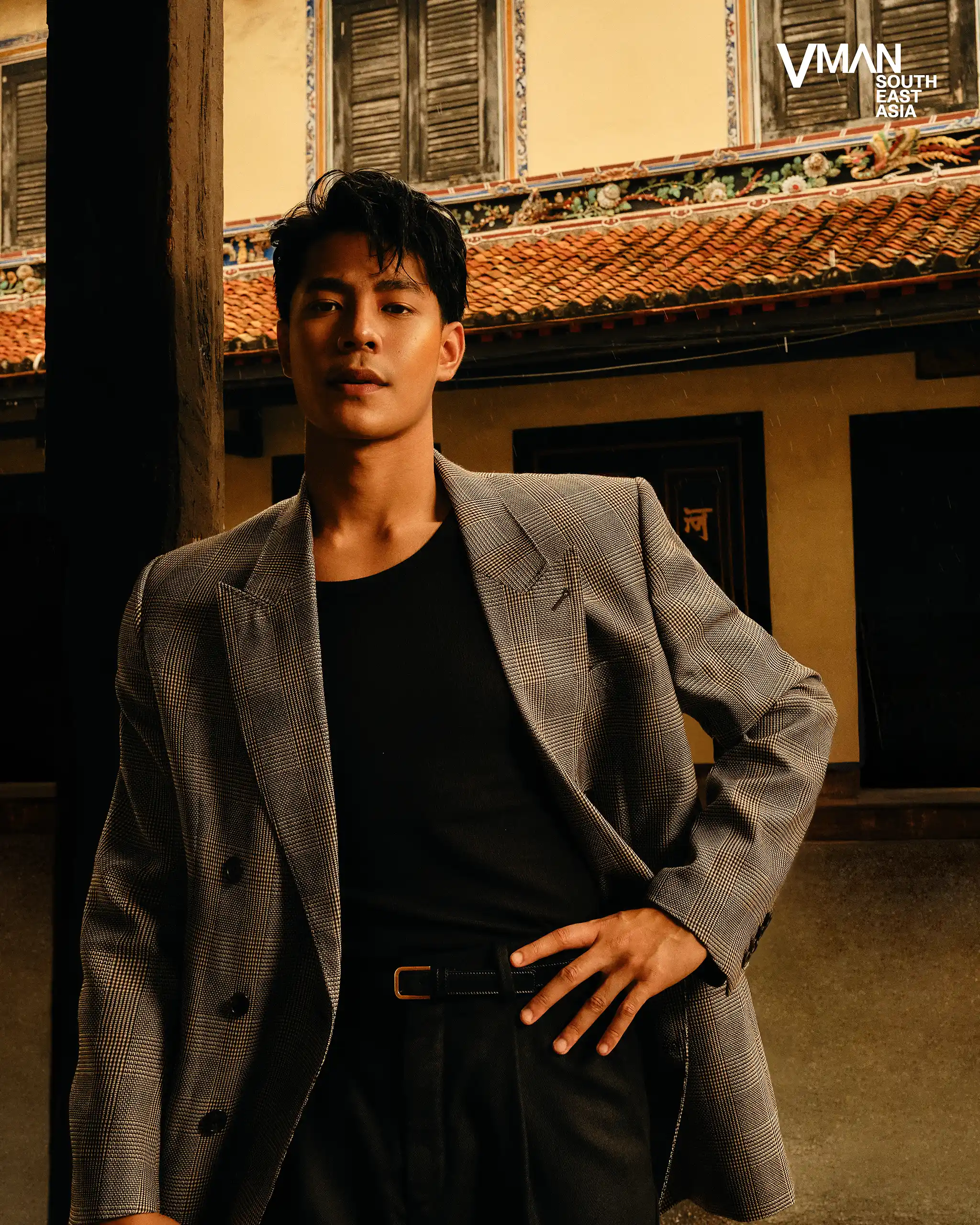
But when the camera lifts, something in him tightens and sharpens. The laughter drains away; posture straightens; a new charge enters the air. It’s like watching a river reverse its flow. This is Meerqeen’s axis: muscle and mind, instinct and precision, play and ferocity, shifting easily between them.
A legacy in the background
Born Muhammad Shameer Shauqeen Shaiful Izam, Meerqeen is a star who appears sudden, explosive even, but whose origins are decades in the making. Raised in a family where the arts hummed in the background like a steady undercurrent, performance was both legacy and rebellion. His grandfather and uncle were actors; his aunt, a singer. But this wasn’t a family that pushed the spotlight, it simply didn’t resist it.
Still, Meerqeen’s path to the screen was not preordained.
“People always think I grew up obsessed with movies or performing, but I didn’t. I wasn’t a theater kid. I liked sports, hanging out, music, messing around with my friends. I wasn’t chasing fame.”
What he was chasing, what he didn’t quite know how to name, was a feeling. A way of existing outside himself and translating emotion into movement. On the rugby field, he found it first. Speed, aggression, split-second decisions. Rugby demanded his full presence, every muscle alert, every thought honed.
“I’ve always loved sports,” he says, as if it’s the most natural thing in the world. His mother played netball for the country; his father, football. “I played rugby for Selangor.”
The game gave him structure, discipline, and a relationship with exhaustion and pain that was intimate and unafraid. He learned to push past thresholds, to crash into limits and keep going. Rugby demanded fearlessness. But acting demanded something else entirely. Endurance of a different nature. A willingness to break open from the inside. To sit in discomfort. To explore emotional landscapes as rough and unpredictable as any field.
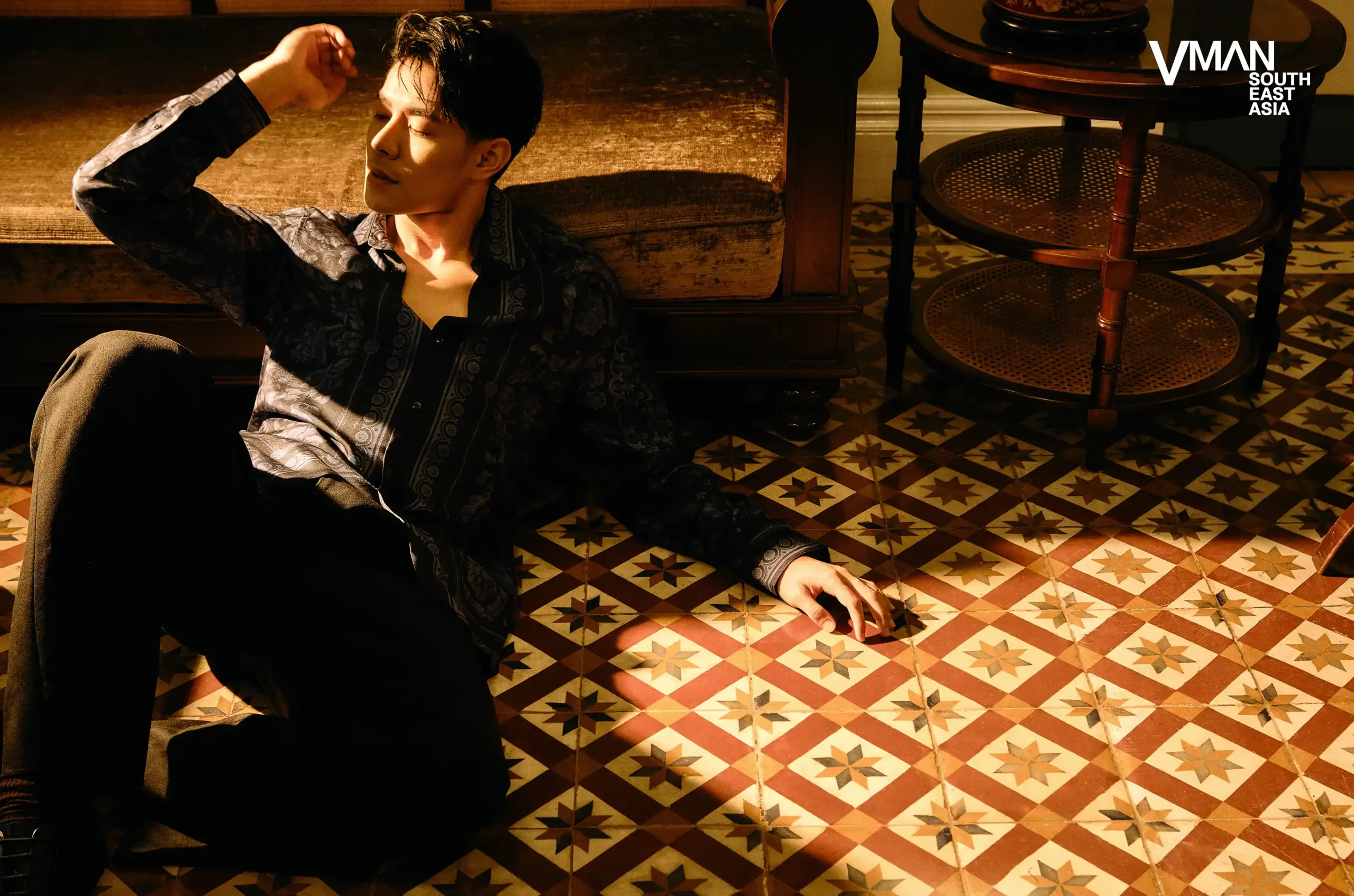
Auditions, rejections, and a backup plan
“After 40 auditions, I almost gave up,” he says, a smile tugging at the edge of his mouth, though the memory clearly still stings. “I told my mom, ‘If I don’t get this one, I’ll just go back to insurance law.’”
It’s almost comical now, this image of Meerqeen behind a desk, drafting contracts, surrendering to a career that dulled him. He studied law for his family, not for himself. “It’s a very Malaysian thing,” he says. “Do something practical first. Dreams come later, if ever.”
But the dream kept whispering. And when he landed his breakout role, he didn’t tiptoe in. He stormed the gates. “I got the role and just… went for it. I didn’t know all the rules yet, so I wasn’t scared of breaking them.”
His early years in the industry were a crucible. Meerqeen learned fast, on set, in auditions, from rejection. He absorbed criticism without letting it calcify into doubt. He watched his seniors closely, but never let imitation replace instinct. His growth was visible as each project layered more precision, vulnerability, and truth. He wasn’t interested in being a pretty face. He was interested in being undeniable.
Now, standing as the first Malaysian to cover VMAN Southeast Asia, he has become the proof he once went searching for.
“People doubted me. They said Malaysia would never be recognized internationally. But I proved them wrong.”
It’s a milestone that carries weight, not just for him, but for a generation of Southeast Asian artists watching borders begin to blur. Representation has long been a fragmented and uphill battle in the region. While countries like South Korea and Japan have carved out dominant entertainment industries, the rest of Asia is still finding its collective voice on the global stage.
“I want to be part of that wave. Not just for me, but for everyone who’s been told, ‘stay in your lane.’”
The stakes are higher now. Global interest is no longer theoretical. There are meetings, scripts, auditions, some in languages not his own, some carrying the burden of cliché and exoticism. He’s learning to navigate it all without losing himself. Without becoming a version of “Asia” designed for others’ consumption.
“I’m Malaysian. That’s not a costume I put on or take off. That’s the lens I bring to every story.”
What people often miss in Meerqeen’s ascent is the grind behind it. The early morning gym sessions. The dialect coaching. The hours spent dissecting scripts, learning new emotional vocabularies. He trains for action roles with the country’s top martial artists. He rehearses until his body and voice become instruments tuned to the character’s pitch.
“It gets easier,” he says, though you get the sense that’s less about the workload and more about his relationship to it. “It’s all about balance.”
More than a pretty face
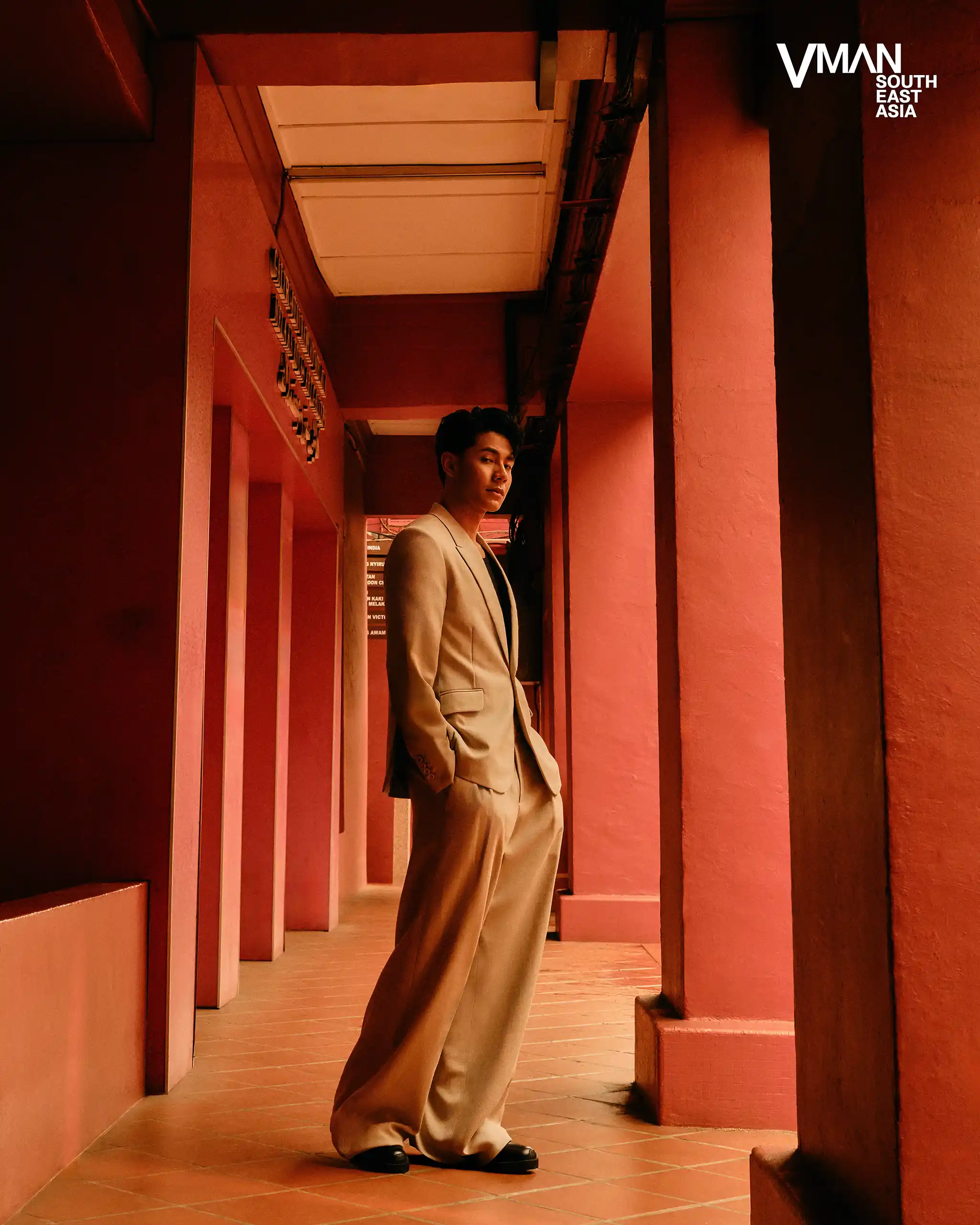
Balance. The word hums under every version of him: the athlete and the actor, the joker and the tactician, the boy who once dreamed of escape and the man building a future on his own terms. It’s what allows him to slip between worlds, between genre and expectation, between tenderness and power.
Even now, as the last of the equipment is packed away and the light fades into a gray hush, he remains in the rain, his shirt clinging damply to his frame, his face open and unguarded. Someone calls his name; he turns easily, laughing, waving, moving toward them without hesitation.
It would be easy to reduce Meerqeen to his looks. He is, undeniably, striking: tall, with sharp cheekbones, intelligent eyes, and a smile that disarms without effort. But to stop there would be to miss the entire point of him.
Read Meerqeen’s full cover story in the pages of VMAN SEA 03: now available for purchase!
Photography Chee Wei
Chief of Editorial Content Patrick Ty
Creative direction Vince Uy
Fashion Mughni Che Din
Grooming Cat Yong
Hair Ckay Liow
Art direction Summer Untalan
Fashion assistant Surya Ammari
Photography assistant Max Ong
On location The Majestic Malacca
Special thanks Ervin Tan and Alvin Kessler

